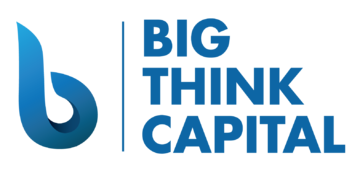
Choosing the right financial product for your business can be challenging, given the multitude of options available in the market. Two of the most popular funding options are Merchant Cash Advances and SBA 7(a) Loans. With distinct features, benefits, and limitations, each of these financial tools serves unique business requirements. In this comparison, we delve into the basics of Merchant Cash Advances and SBA 7(a) Loans, explore their pros and cons, and aid you in deciding which financing option aligns best with your business goals.
Understanding the Basics
Before we delve into the specifics of each loan type, it’s essential to grasp the general concept behind the financial tools known as merchant cash advance and SBA 7(a) loans. Both are forms of small business financing, but each has unique attributes to consider depending upon a company’s needs and circumstances.
Introduction to Merchant Cash Advance
A merchant cash advance (MCA) is a lump sum of cash provided by a lending firm to a business, with the agreement that the advance amount, along with fees and interest, will be repaid using future credit card sales. The repayment is made by automatically withholding a percentage of every credit card transaction from the business’s bank account, known as the retrieval rate.
Unlike traditional bank loans, a merchant cash advance is not dependent on a set repayment schedule or minimum credit score. Instead, the repayment period for an MCA is loosely based on the company’s monthly credit card sales. This type of financing can be beneficial for service companies that process many credit card transactions and need fast access to cash.
Introduction to SBA 7(a) Loans
On the other hand, Small Business Administration 7(a) loans, or SBA 7(a) loans, are traditional bank loans intended to support small businesses. The “7(a)” refers to a section of the Small Business Act that authorizes the federal agency to provide business loans.
The appeal of these loans is that they offer relatively low interest rates and longer repayment terms. However, they often require a robust credit score, collateral, and a more extensive application process than a merchant cash advance. These loans are beneficial for businesses seeking a more significant amount of capital to invest in long-term projects or larger purchases.
Direct Comparison of Merchant Cash Advance and SBA 7(a) Loans
While both MCA and SBA 7(a) loans are financing options, one might be more suited to your needs than the other. Merchant cash advances provide quick access to capital with a fast and simple application process. However, this is accompanied by higher interest rates and potentially aggressive repayment plans, as a portion of daily credit card sales is used to repay the sum.
SBA 7(a) loans offer lower cost financing, with lower interest rates and longer repayment terms. However, this traditional loan type typically requires an extensive application process, a good credit score, and collateral. Let’s delve into the pros and cons of each option to better understand their implications.
Pros and Cons of Merchant Cash Advance and SBA 7(a) Loans
Benefits of Merchant Cash Advances
- Fast access to capital
- Simple application process
- No need for perfect credit
- Potential to fund a business with inconsistent cash flow
- Retrieval rates adjust with your daily credit card sales, providing some flexibility
Drawbacks of Merchant Cash Advances
- Higher interest rates compared to traditional loans
- Regular deduction from credit card receipts can impact cash flow
- Less regulation in comparison to traditional financing, potentially leading to aggressive retrieval rates
Advantages of SBA 7(a) Loans
- Lower interest rates
- Longer repayment periods
- The capability to borrow a larger amount
- Suitable for a broad range of business needs
- Federally guaranteed, reducing risk for lenders and potentially allowing businesses with less-than-perfect credit to qualify
Interested in an SBA 7(a) Loan? Reach Out to the Team at Big Think Capital
If an SBA 7(a) loan seems like the right fit for your business, it may be beneficial to consult with the experts at Big Think Capital. Our team of industry professionals can guide you through the application process and advise on how best to leverage this type of loan in your unique business situation.
Disadvantages of SBA 7(a) Loans
- Lengthy application process
- Requires a solid credit score
- Requirement of collateral
- Stringent usage restrictions on loan funds
Making the Decision: Which Is Right for Your Business
Determining the right financing option for your business requires careful evaluation. Importantly, you should consider the unique needs of your business, the potential impact on your operations, and alignment with long-term business goals.
Varying Business Needs and Suitability
First and foremost, choose a financing solution that connects directly to the unique needs and situation of your business. Different funding options offer benefits and drawbacks, so align these to your business’s specific requirements.
Consider a merchant cash advance if your business conducts substantial credit card transactions. Service companies such as restaurants, retailers, and salons can briskly meet the retrieval rates in cash advances due to their daily credit card sales. Additionally, a merchant cash advance may be a fitting option if your credit score prevents you from securing a traditional bank loan.
On the other hand, SBA 7(a) loans may be a more appropriate choice for businesses seeking a substantial amount of capital for a significant investment. This could be anything from purchasing commercial real estate to expanding operations. The lower interest rate and longer repayment period gives businesses the flexibility they need to grow without straining their cash flow.
The Impact on Cash Flow and Business Operations
The chosen financing option will inherently have implications on your business’s cash flow and operations. Be careful to consider these impacts comprehensively in your decision making.
A merchant cash advance might offer an immediate lump sum, which could be useful for urgent needs. However, it’s important to know that the repayment, pegged on future credit card sales, may squeeze your daily cash flow, particularly during slow sales periods.
In contrast, SBA 7(a) loans offer predictable repayment schedules based on a fixed monthly payment. While this provides stable cash flow forecasting, it requires your business to maintain a consistent income stream to meet the repayment obligations.
Meeting Business Plans and Long-Term Goals
Your financing choice should not only solve a current need but also align with your business’s long-term vision and operations. Look beyond the current financial hurdle and consider how your chosen option would support business continuity.
Merchant cash advances could be suitable for businesses with short-term financing needs or those looking to weather a temporary financial downturn. Conversely, SBA 7(a) loans, with their larger sums and longer repayment terms, are geared toward businesses looking to make significant investments in their future growth.
The Importance of Evaluating Risk and Return
Understanding the risk-return tradeoff is crucial when choosing between Merchant Cash Advances (MCAs) and SBA 7(a) Loans. MCAs tend to be higher risk but offer quicker access to funds. However, this convenience comes with higher interest rates and the potential for aggressive repayment terms. On the other hand, SBA 7(a) Loans involve lower risk due to their regulated structure but require a more rigorous application process. They offer longer repayment periods and lower interest rates, but stringent requirements might make them less accessible for some businesses.
Assessing risk tolerance is essential. If your business can handle higher interest rates for faster access to funds and has a robust daily credit card sales history, an MCA might suit your risk appetite. However, if you can endure a longer application process and seek lower interest rates with more extended repayment terms, an SBA 7(a) Loan might be more appropriate.
Emphasizing Financial Planning
The choice between an MCA and an SBA 7(a) Loan should align with your business’s financial planning. Having a clear financial roadmap is vital, especially concerning debt management and growth strategies.
An MCA can be a valuable short-term solution, catering to immediate cash flow needs, but may not be the best fit for substantial long-term investments. On the contrary, SBA 7(a) Loans, with their lower interest rates and longer repayment terms, align better with strategic initiatives requiring significant capital and planning.
Ensure that your choice not only addresses immediate needs but also supports the broader financial goals of your business. Consider consulting financial advisors or accountants to evaluate the impact of each option on your business’s financial health and long-term growth trajectory.
Find Financing With Big Think Capital
Choosing between a merchant cash advance and an SBA 7(a) loan can be complex, but you don’t have to decide alone. The team at Big Think Capital can provide guidance based on your business’s needs, cash flow specifics, and long-term profitability goals.
At Big Think Capital, we understand the challenges small businesses face when seeking funding. We can assist you in navigating the lending landscape, providing expert advice on when to consider a merchant cash advance, SBA 7(a) loans, or other financing options. Our professionals are dedicated to helping you make the best decision for your business, both for the present and the future.
Reach out today to discover how Big Think Capital could lift your business to the next level.








